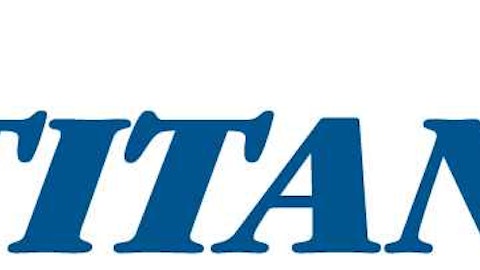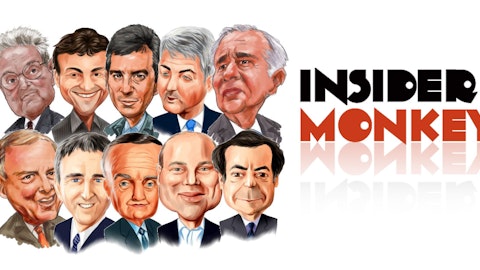The majority of U.S.-listed companies have already revealed their third-quarter earnings reports, so insiders seem to have more flexibility when it comes to buying or selling shares. In fact, the volume of insider trading activity has been expanding over the past few weeks. However, the Dow Jones Industrial Average closed 179.85 points in the red on Monday, and tumbled into negative territory for the year again. Therefore, one may be really cautious about monitoring insiders’ trades at this point in time, when the broader stock market sentiment tends to dictate the direction of most equities. Even so, insider buying might point to great prospects at the companies that witness this type of activity, or can at least suggest insiders’ confidence in the future of their companies. The Insider Monkey team pinpointed three companies with heavy insider buying activity last week, so this article will discuss potential reasons that might have guided insiders to purchase stock.

Lightspring/Shutterstock.com
Most investors can’t outperform the stock market by individually picking stocks because stock returns aren’t evenly distributed. A randomly picked stock has only a 35% to 45% chance (depending on the investment horizon) to outperform the market. There are a few exceptions, one of which is when it comes to purchases made by corporate insiders. Academic research has shown that certain insider purchases historically outperformed the market by an average of seven percentage points per year. This effect is more pronounced in small-cap stocks. Another exception is the small-cap stock picks of hedge funds. Our research has shown that the 15 most popular small-cap stocks among hedge funds outperformed the market by nearly a percentage point per month between 1999 and 2012. We have been forward testing the performance of these stock picks since the end of August 2012 and they have returned 102% over the ensuing 37 months, outperforming the S&P 500 Index by more than 53 percentage points (read the details here). The trick is focusing only on the best small-cap stock picks of funds, not their large-cap stock picks which are extensively covered by analysts and followed by almost everybody.
AES Corp (NYSE:AES) is one of the three companies that has been backed up by insiders recently. President and Chief Executive Officer Andrés Gluski purchased 20,250 shares on Monday at a price of $9.88 per share, lifting his stake to 595,615 shares. The CEO also holds an indirect ownership stake of 22,561 shares through the AES Corporation Retirement Savings Plan. The diversified power generation and utility company has recently revealed mixed third-quarter financial results, which were overshadowed by the lowered earnings guidance that disappointed investors. AES Corp (NYSE:AES) lowered its 2015 earnings guidance to the range of $1.18-to-$1.25 per share from $1.25-to-$1.35 per share, citing adverse impact from exchange rates, weak and volatile commodities prices and sluggish demand in Brazil. Subsequently, the stock has lost 28% since the beginning of the year, but it is currently trading at an attractive trailing P/E ratio of 11.65. This compares with a median of 23.41 for the companies included in the S&P 500. 25 hedge funds monitored by our team held positions in the company at the end of the second quarter, amassing 3.50% of its outstanding shares. Israel Englander’s Millennium Management was one of the largest equity holders of AES Corp (NYSE:AES) amongst these investors, holding 4.77 million shares as of June 30.
Follow Aes Corp (NYSE:AES)
Follow Aes Corp (NYSE:AES)
Receive real-time insider trading and news alerts
The second page of the article lays out the insider trades at Titan International Inc. (NYSE:TWI) and NuStar Energy L.P. (NYSE:NS).



